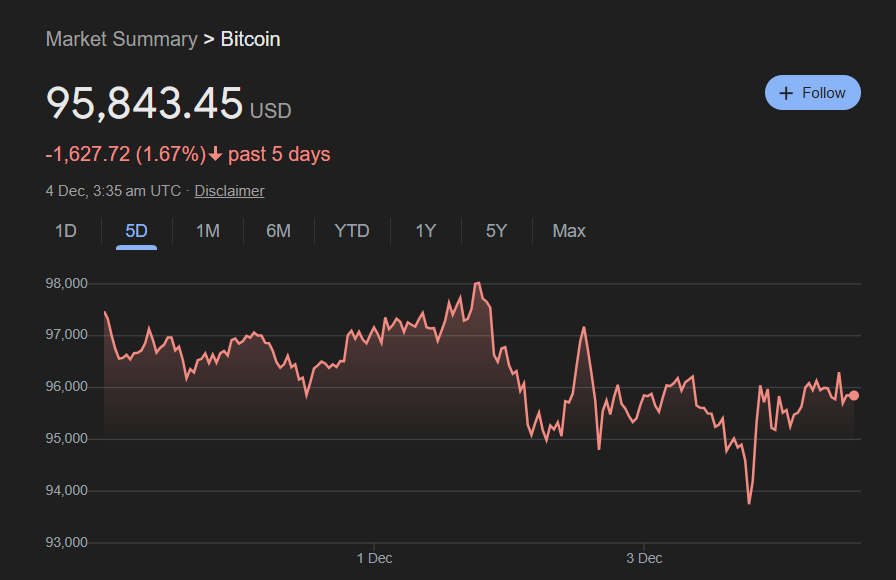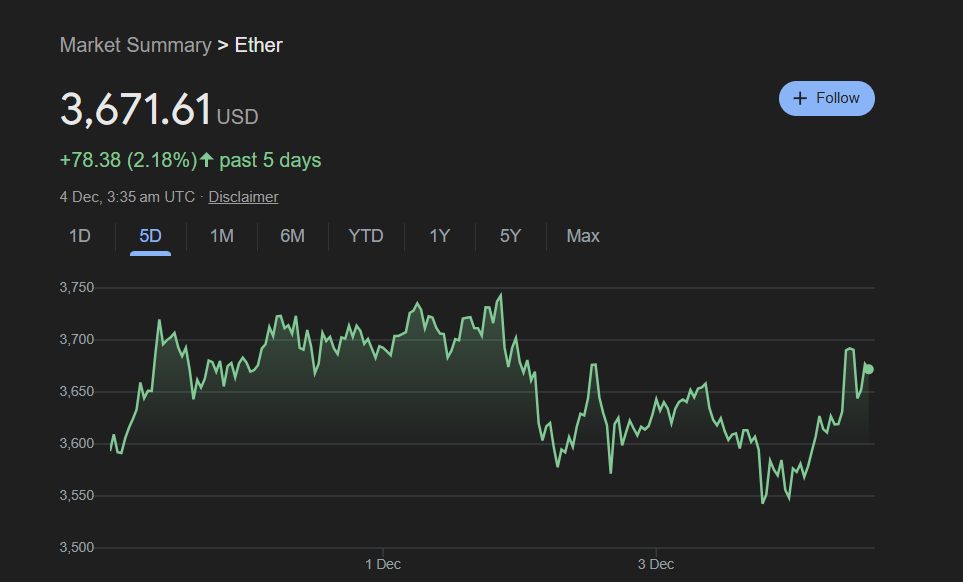Table of Contents
As South Korea descended into martial law overnight, the crypto market took a brief dip but has since rebounded convincingly after the hasty decision was reversed just hours later.
President Yoon Suk Yeol declared martial law late on 3 December, triggering unrest as lawmakers frantically banding together to overturn the decision while military troops forcefully surrounded parliament.
Members of parliament were even seen reportedly using fire extinguishers to prevent military personnel from entering the legislative building.
All 190 of South Korea parliament's 300 members who turned up to vote passed a notion in the early hours of Wednesday that required the martial law to be lifted.
“I will accept National Assembly’s request and lift it,” Yoon said in response.
A coalition of opposition lawmakers has since announced plans to propose a bill to impeach President Yoon, which will be voted on within 72 hours.
🇰🇷🚨‼️ SUMMARY OF THE CRAZY EVENTS IN SOUTH KOREA:
— Lord Bebo (@MyLordBebo) December 3, 2024
1) The president of South Korea expected an impeachment from the opposition.
2) To prevent that, he declared martial law banning all political activity!
3) The Korean army came and closed off the parliament to prevent MPs to… pic.twitter.com/Ez5UcQutFR
Throughout the ordeal, cryptocurrencies took a brief toll. Bitcoin, Ethereum, and XRP all slipped as news unfolded of South Korea's turmoil. Bitcoin slipped below the $94K mark and even fell to as low as $61,200 on Korean exchange, Upbit.
XRP's upward trajectory over the week was halted, slipping back down to around $2.40, while Ethereum fell by 7%.



However, since martial law has been uplifted, the three cryptocurrencies have regained traction. Although not quite returning to their pre-martial law prices, the cryptos have seemingly restored their momentum.
What's more, the likes of TRON and IOTA have experienced phenomenal growth over the last 24 hours, rising 70% and 40% respectively. Over the week, the pair have jumped 94% and 168% respectively too.

Earlier this week, South Koren lawmakers agreed to delay the launch of its crypto tax until January 2027.
“We have decided to agree to a two-year moratorium on the implementation of cryptocurrency taxation proposed by the government and ruling party,” said Democratic Party floor leader Park Chan-dae.
While the government proposed a two-year postponement and the ruling People Power Party suggested a three-year delay, the Democratic Party had earlier opposed both, instead advocating for increased tax deductions as an alternative.









